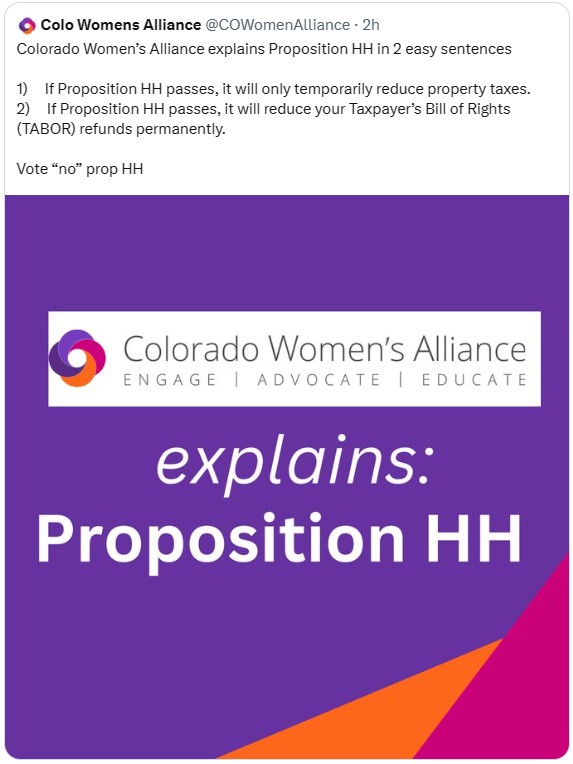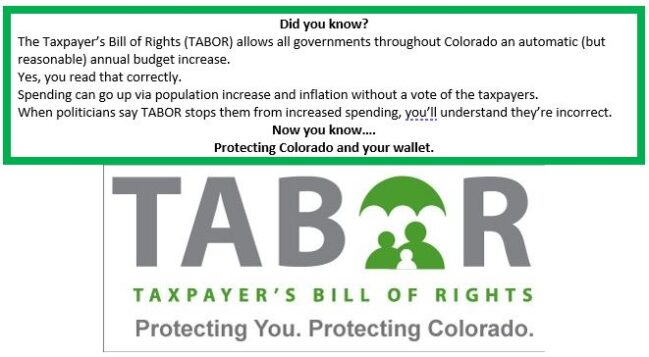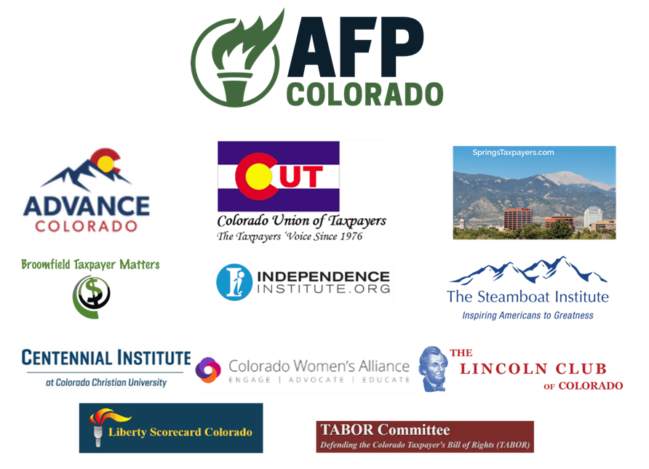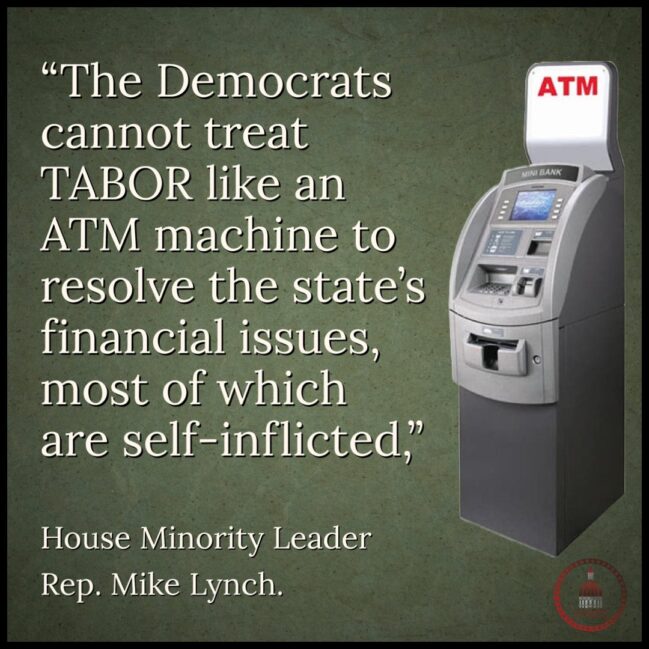Menten: Honest voter guide needed to counter Proposition HH deception
August 15, 2023 By Natalie Menten
 In October 2023, Colorado voters are going to get a ballot information guide, nicknamed the Blue Book (it literally has a blue cover page) in the mail prior to the arrival of their actual ballots.
In October 2023, Colorado voters are going to get a ballot information guide, nicknamed the Blue Book (it literally has a blue cover page) in the mail prior to the arrival of their actual ballots.
This year the Blue Book will cover the two statewide tax increases – Proposition II and HH.
Common questions during the election include who phrases the ballot questions and who writes the Blue Book. This is especially true when ballot questions are deceptively worded like Proposition HH, which paints pictures of pies in the sky without disclosing the real intent to screw you out of your Taxpayer’s Bill of Rights (TABOR) refunds for at least the next 10 years, and likely forever.
The Blue Book is where you can make a difference. You get to participate and no expertise is needed. There’s a special reason that you’re especially needed this year.
Slick politicians wrote the Prop HH ballot language and rushed it through the state legislature without responsible notice to the public. A recent survey indicates 2/3 of voters will vote for Proposition HH if they read only the deceptive and misleading ballot question that state Representatives Chris deGruy Kennedy and Mike Weissman, and Senators Steve Fenberg and Chris Hansen cunningly wrote.
It’s up to us to ensure content in the ballot guide provides a full and clear picture to voters. Otherwise, the majority of the players at the table are the very politicians who hate spending limits and TABOR, like the sponsors of Prop HH (Senate Bill 23-303). Continue reading





 By Dennis Polhill
By Dennis Polhill